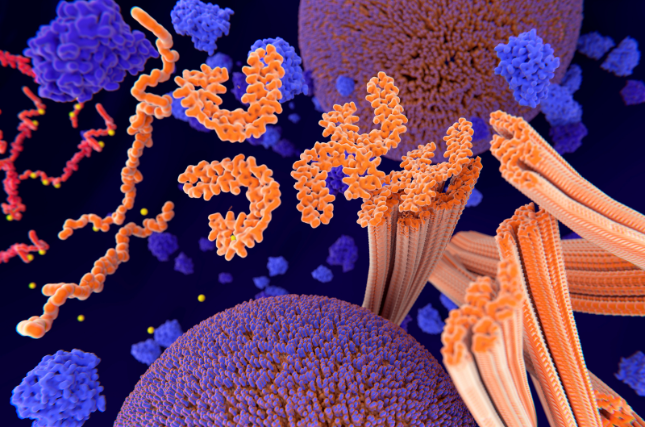
December 11, 2024 — Repeated fasting triggers a cellular memory mechanism in the liver, which enhances its response to fasting at a later date, according to a new study by Hebrew University of Jerusalem researchers.
The study, published in Nucleic Acids Research, uncovers a fascinating link between alternate-day fasting (ADF) and the liver’s ability to adapt through heightened gene activation and production of ketone bodies, a backup energy source that the body uses when glucose is unavailable, such as during fasting.
“Our study shows how the liver adapts to repeated fasting through a memory-like mechanism that prepares it for future fasting bouts,” says lead researcher Dr. Ido Goldstein from the Institute of Biochemistry, Food Science, and Nutrition at the Robert H. Smith Faculty of Agriculture, Food and Environment at the Hebrew University of Jerusalem. “This enhancer sensitization process underscores the liver’s remarkable ability to dynamically respond to recurring nutritional states.”
Fasting induces metabolic changes in mammals that enable the production of glucose and ketone bodies used for energy during periods of food scarcity. This process is driven by transcriptional changes in the liver (i.e., changes in the expression of genes).
Dr. Goldstein’s team investigated how recurring fasting events, such as ADF, influence this transcriptional program. Their findings revealed that mice undergoing ADF responded significantly differently to subsequent fasting bouts compared to mice who were fasting for the first time.
Fasting practices have long been rooted in religious tradition and faith-based rituals. Repeated fasting during holidays – such as Yom Kippur in Judaism, Ramadan in Islam, Lent in Christianity, and various Hinduism and Buddhism rituals – often involve repeated fasting periods, which raises questions about how the body adapts to these recurring, altered nutritional states.
Intermittent fasting, prolonged fasting, and time-restricted eating are also becoming popular tools for improving overall health and weight management. Proponents cite many benefits, including improved metabolic health, weight control, and, potentially, increased longevity.
Hebrew University researchers discovered that after one week of alternate-day fasting, ketone body production increased. During feeding periods, gene expression and ketone levels returned to normal, showing that key genes for ketogenesis are more activated during fasting. Therefore, ADF health benefits are apparently linked to this enhanced ketogenic capacity, not changes in calorie intake or body mass.
These findings provide a deeper understanding of how repeated environmental signals, such as fasting, shape cellular behavior and metabolic adaptation. Beyond fasting, this research opens new avenues for exploring how transcriptional regulation mediates responses to other recurring environmental stimuli, with potential applications in dietary science and metabolic health.
The research paper, titled “Repeated fasting events sensitize enhancers, transcription factor activity and gene expression to support augmented ketogenesis,” is now available in Nucleic Acids Research and can be accessed here.
Researchers:
Noga Korenfeld1, Meital Charni-Natan1, Justine Bruse2, Dana Goldberg1, Dorin Marciano-Anaki1, Dan Rotaro1, Tali Gorbonos1, Talia Radushkevitz-Frishman1, Arnaud Polizzi2, Abed Nasereddin3, Ofer Gover1, Meirav Bar-Shimon1, Anne Fougerat2, Hervé Guillou2, Ido Goldstein1
Institutions:
- Institute of Biochemistry, Food Science and Nutrition. The Robert H. Smith Faculty of Agriculture, Food and Environment. The Hebrew University of Jerusalem. POB 12, Rehovot 7610001, Israel
- Toxalim (Research Center in Food Toxicology), INRAE, ENVT, INP- PURPAN, UMR 1331, UPS, Université de Toulouse, Toulouse, France
- Genomics Applications Laboratory, Core Research Facility, Faculty of Medicine, The Hebrew University of Jerusalem-Hadassah Medical School





